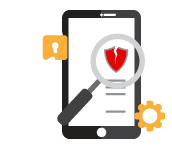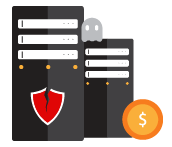Each year in Australia there are thousands of cyber breaches to businesses. While most of these breaches affect smaller businesses, occasionally there are “major” cyber breaches that impact large organisations and a huge number of people.
For Australian businesses, knowing how these cyber breaches occurred can help them protect their own data by ensuring they don’t allow the same thing happen to them. Below, we’ve listed the major cyber breaches in Australia that have had the biggest impact on the largest number of people.







